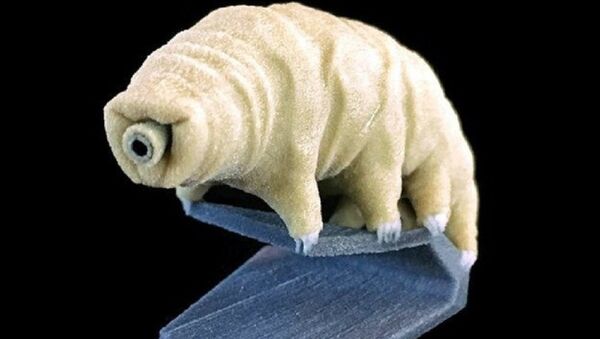New research carried out by a group of scientists from the University of Copenhagen found that tardigrades, also known as “water bears” or “moss piglets”, are not as tough as they have been promoted, displaying a few fatal weaknesses, according to the paper published on 9 January on the Scientific Reports website.
“Tardigrades are definitely not the almost-indestructible organism as advertised in so many popular science websites,” said Ricardo Cardoso Neves, a postdoctoral scientist in biology at the University of Copenhagen, and co-author of the research paper, cited by Live Science website.
The research found that these microanimals rapidly die under exposure to temperatures over 100 °C for more than an hour. Neves said that in earlier research, tardigrades were able to survive being boiled at up to 151 °C for an hour, but at the time no one tried to expose them to high temperatures for longer.
“Tardigrade was able to survive temperatures of approx. 70 °C for 1 hour in an anhydrobiotic state. However, exposure to higher temperatures significantly decreased survival and not a single specimen survived exposure to 100 °C,” the report stated.
The research group exposed different types of tardigrades, which live in both fresh and salt water, to various temperatures for various periods of time. In the result, unexpectedly, most did not survive.
“At the end of our study, we were quite surprised to see our results, because we expected the tardigrades — both in their active state and desiccated state — to survive higher temperatures, which was clearly not the case,” Neves said. “We had found their Achilles' heel.”

